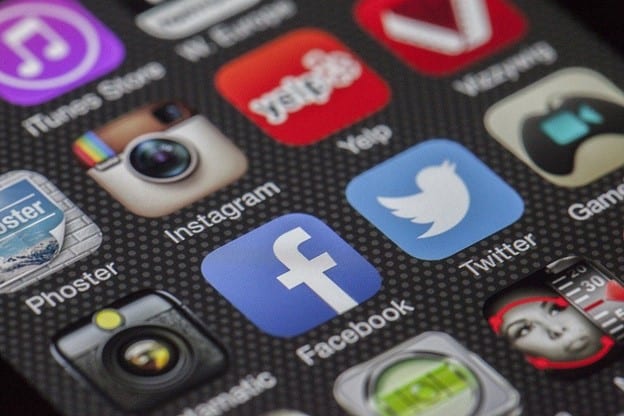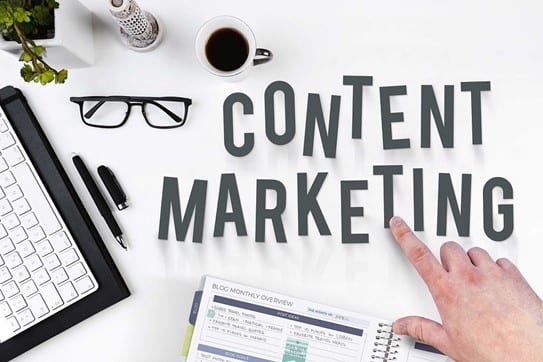6 Ways AI Will Impact Digital Marketing in the Future



AI will not only be used to manage apps or the battery on a smartphone. It will be used to recommend retail outlets, gyms, restaurants, etc. to us all. This is how digital marketing will be influenced by AI and be completely transformed.
Here are 6 ways that AI will transform digital marketing forever:
1. More Chatbots
Chatbots are already being integrated into several websites. Businesses are already using apps like Facebook Messenger, WhatsApp, Slack, etc. to interact with them. However, they don’t go far enough. At the moment, only certain limited responses are programmed into chatbots to answer the most common questions.
In the future, chatbots will be able to answer nearly every question that a customer has and will recommend answers. Major players like IBM Watson can recognise things like intent and context and use NLU to engage.
Also, chatbots can handle hundreds of users at once at any given time. This will allow businesses to reel in many more customers than they already do. Office hours or business hours will become a thing of the past as far as customer queries are concerned.
Perhaps the biggest advantage of chatbots is that the language barrier will be eliminated. Customers will be able to ask questions in their native language, and the chatbot will recognise it and respond. This will be a game-changer for businesses that are looking to expand into new territories.
2. More Personalised Email Marketing
For email marketing, AI can do so much more than is possible now. The most basic applications will be to send out specific emails based on the customer’s history. Consumer behaviour and purchases will inform AI to send out personalised emails
AI will be able to change captions/subjects and modify calls to action as well as large chunks of text. Images will vary depending on the type of customer the email is for. All of this will make A/B testing and dynamic content extremely effective for email marketing.
3. Ads Will Become Akin to Recommendations
With all the data that is available for AI marketing through smart devices, ads will become more akin to recommendations. The data that a single person provides will allow AI to suggest very specific products and services to them. These products and services will relate to their daily activities, their favourite choices, and their likes and dislikes.
The data available to AI will include social media interactions, app usage, daily activity, and even financial activity. Through these data sets, AI will be more capable of gauging your interests, needs, and wants without much help.
4. Sales Forecasts Will Include More Accurate Data
The business side of marketing will benefit greatly from AI as well. Due to AI’s ability to juggle so much data and extract specific insights, companies will be able to gain clarity. Sales forecasts and product engagement will be much more accurate. The data that companies will get to create new products and services will be much more actionable and specific.
In this regard, the traditional metrics used to gauge consumer interest will be left behind. More complex metrics that are a criss-cross of different variables, indicators, and responses will be used in marketing.
AI will be able to predict accurately whether a new service or product will be profitable based on estimated engagement. In the case of an unprofitable product or one that takes too long to become profitable, AI can suggest changes. That or, AI can suggest a much cheaper alternative or a different route that makes profitability achievable faster.
Hence, companies will be able to make better decisions concerning marketing and production with this information.
5. Device Based Ads Will Become More Common
Today there are several smart devices that people use, including smartwatches, smartphones, smart VR headsets, etc. AI will recommend ads on those devices that will be tuned to their specific applications. For example, smartwatches have almost exclusively been pegged as a fitness tool. Hence, AI may recommend wearers specific parks or fitness services that they may like to use.
Smartphones are already recommended apps when they search queries on search engines. In the future, users may be suggested specific accessories or apps that can help them with their daily tasks. Since smartphones record tons of data already, this isn’t too difficult a leap.
6. AR/VR Ads Will Become the Standard
Today, more devices are being released with AR and VR technology than ever before. Most recently, the iPhone 12 was released with AR capabilities. Several other brands are doing the same with their phones as well.
This entails that more people will be using AR and VR in their apps and their browsers in the years to come. Hence, ads will also be using these technologies. Already, certain stores are using AR and VR to sell furniture and clothing items.
AR technology allows customers to map certain pieces of furniture on to their physical rooms through their camera. Hence, they can see how the chair/table/shelf, etc. looks in their home. The same can be done with clothes, although less successfully.
In the future, all sorts of products and services will make use of VR for marketing.
AI will hugely influence the future of marketing, that much is certain. However, it’s pertinent to note that this will involve generating and sifting through huge datasets. AI capable of doing that without human intervention is not here yet. That being said, improvements in technology almost guarantee that this kind of AI will influence marketing in the next decade.






